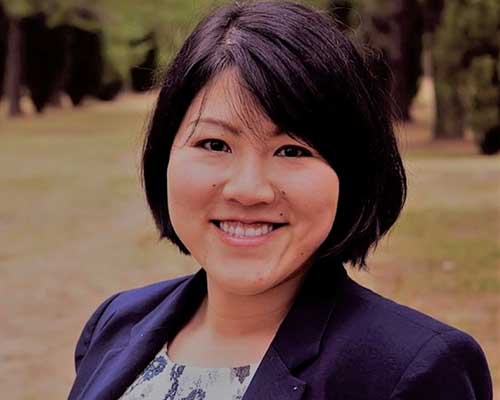Bullied registrars, toxic hospitals and why medical colleges are now under the spotlight

The findings were damning.
Multiple trainees were left to perform procedures they are not formally qualified for, the report said.
Their calls to consultants for clinical help and support were frequently unanswered.
And the culture in the unit was described as “fractious and toxic”.
These were just some of the conclusions of an inspection in June this year of Canberra Hospital’s O&G department.
Carried out by RANZCOG to ensure the training of its registrars was fit for purpose, it revealed another case study in a public hospital breaking bad.
The unit is now on a six-month probation period, with the college threatening to strip it of accreditation completely if it fails to improve.
Others have featured in the headlines.
In 2019 departments at three Sydney hospitals lost training accreditation — the ICUs at Westmead Hospital and St George Hospital, along with the cardiothoracic surgery department at the Royal Prince Alfred Hospital.
Bullying and harassment were cited among the problems.
Two years later Mackay Base Hospital in Queensland lost its accreditation for O&G training following an independent investigation into patient safety concerns at the unit.
Then this year, its accreditation to train doctors in general surgery also went.
What is often missing in the headlines are the consequences, not just the uprooting of the lives of trainees and their families, but the emotional impact on those left behind attempting to prevent their workplace falling to bits.
“Trainees have a right to expect a stable, safe place where they can flourish and complete their training,” says AMA president Professor Steve Robson, an obstetrician and gynaecologist at John James Medical Centre in Canberra.
“If they have this sword hanging over their head, that has a profound emotional effect.
“Obviously it can sometimes mean having to move interstate which is a huge wrench right in the middle of training … and it leaves the people who are left behind with an extraordinary mess.”
The impact of these cases has not escaped the attention of health ministers, they have been demanding action, particularly following a yet-to-be-published report by National Health Practitioner Ombudsman examining the standards against which colleges are making their assessments.
But their interest seems slightly less about the emotional impact of these inspections and more about what they see as the workforce holes the loss of accreditation inflicts given the role registrars have in keeping the lights on.
It gained no attention at the time but in July this year, the state, federal and territory health ministers ordered medical colleges to change their accreditation processes.
Issued as a formal policy direction, they said there was a “lack of standardisation” and “significant variation” in the procedures and time frames.
Accreditation decisions, they said, including withdrawal, were having a “significant impact” on workforce numbers and this was having a knock-on effect on patient care.
AusDoc has been told their specific complaint is that colleges have not given sufficient warning before pulling accreditation — the idea that the hospital bosses find out on a Friday afternoon that there will be no trainees come Monday morning.
The medical colleges say they have been receptive to the instruction to improve processes.
Behind the scenes they are working with the Australian Medical Council on an action plan.
But the chair of the Council of Presidents of Medical Colleges, Dr Vijay Roach, says this perception that their processes are impacting on workforce and service delivery is “misplaced”.
“We believe that we have given sufficient notice and guidance … and that sometimes the local health executive either doesn’t escalate or doesn’t act on that information.”
He stresses that accreditation visits generally happen every four years, through a site visit to assess the training available and the conditions for registrars.
It involves interviews with relevant staff, and it is often through these visits that issues will be picked up.
Dr Roach says that when problems are identified, hospitals are usually given six months to improve, and only after a failure to address them will accreditation be revoked.
“[So] the timeline aspect has been exaggerated and misses the point that there has been a lead into that decision,” he says.
He adds: “In an effort to be conciliatory, I would say that communication can be improved.
“But improving communication is the responsibility of all parties, including colleges, medical administration and executive and health departments.”
Professor Robson’s response to all this is a little different.
“I think health ministers and hospital administrators trying to blame-shift that to colleges is absolutely outrageous — they need to take responsibility for their own workforces.
“At a time when the workforce is in many respects so fragile, they need to be proactively doing everything they can to protect every single trainee.”
He adds: “A college is not going to pull accreditation where things are going well.”
A full report into the reasons why a department has lost its accreditation is usually not made public, but Professor Robson says it will be obvious that services are “rock bottom and struggling anyway”.
“In general, we often see that a bad system allows issues like bullying and harassment to flourish.
“So, I think it’s both a system issue and often an overlay of cultural issues.”
But what is the aftermath when a college pulls accreditation?
There is a reluctance to talk publicly given the vulnerability of both trainees and senior doctors caught up in a system gone toxic.
But last week AusDoc spoke to senior doctor brought into a public hospital to fix things up.
She describes arriving to a “disaster, basket case of a place” where only two consultants out of a possible seven had remained.
“It was terrible when we arrived, …nobody trusted anybody. I don’t know how to describe it to you. But you could see traces of it when going through the medical notes that were being written.
“Everyone was complaining about everyone else. There was nothing collegial, nothing good.”
“A lot of nurses were calling the on-call consultants for a second opinion, and I found this horrible to deal with…of course I’ll give anyone a second opinion but that’s not appropriate, you have to trust the team that’s on the floor.”
She believes many of the department’s problems were down to the reliance on locums “band-aiding the rosters”.
“Locums don’t commit, and they’re not trusted because they are just in and out, they work in a different way. It meant that junior doctors were often left unsupervised when they were there, so they’ve learned bad mistakes.
“It’s not their fault but they were making bizarre decisions because they hadn’t had supervision.”
The doctor says the unit has spent six months stabilising its workforce and developing a consultant-led service where there is a consultant on the floor seven days a week.
It is beginning to work, she says.
“We’re not there yet but I do believe we’ve managed to turn it around.”
For registrars, the loss of accreditation can mean the prospect of either finding a new hospital or working as an unaccredited registrar.
Obviously, it can lead to serious delays in their training.
But it is often those who remain at the hospital who suffer “the worst-case scenario”, says Dr James Lawler, a former co-chair of the AMA NSW Doctors in Training committee.
He is referring to those doctors who are used to fill the spaces left behind.
“In a lot of scenarios, trainees who are seeking to further their training will leave and go to other accredited training sites. But the hospital will then try and fill these positions with unaccredited trainees or just junior doctors willing to work in unaccredited positions who tend to be a little bit more junior.
“Those trainees won’t be getting training and supervision in line with what the college recommends while they’re working.
“And they will still be stuck in a unit that might have significant cultural or bullying issues.”
He adds: “Hopefully — at the end of it all — training is eventually better for trainees at those sites. But it’s often worse before it gets better.”
Professor Robson, who said he had worked as a senior doctor in departments where accreditation has been pulled, says the impact is “utterly debilitating to your clinical practice”.
“Having trainees go is often the icing on a very mouldy cake,” he says.
“People will be tarnished by the reputation of the unit they’re working in — nobody wants to work in a unit that has lost its accreditation or is under threat of losing its accreditation.
“And ultimately it plays out by having an effect on patient care.”
He also believes that the hospital administrators who he says “have allowed this to happen” often get away with no consequences.
“I’m certainly familiar with circumstances where people have just wrecked services and then moved on somewhere else. In my opinion, that is an obscenity as well.”
Canberra Hospital’s child at risk health unit is also currently under review after being put on probation in August.
Dr Betty Ge, chair of the AMA ACT Council of Doctors in Training, says the hospital is “tangled in a vicious cycle”.
“I think we saw it coming. We knew the culture wasn’t great and we were trying to advocate and trying to change it from the top down,” she says.

Dr Betty Ge.
“But unfortunately, I feel there is lack of motivation or ambition from senior management. If you’re not properly staffed, the culture of the unit runs low, and it goes into a vicious cycle.”
So, yes losing accreditation is a traumatic event. But it is for that reason, she says, that change happens.
“I think unless the hospital loses accreditation then really there’s no clear determination shown by the senior management to face the problem, to address the problem and to improve the work environment for doctors.
“The loss of accreditation is tremendously traumatic for everyone. But I also see it as an opportunity to pause and reset.”
Read more:

